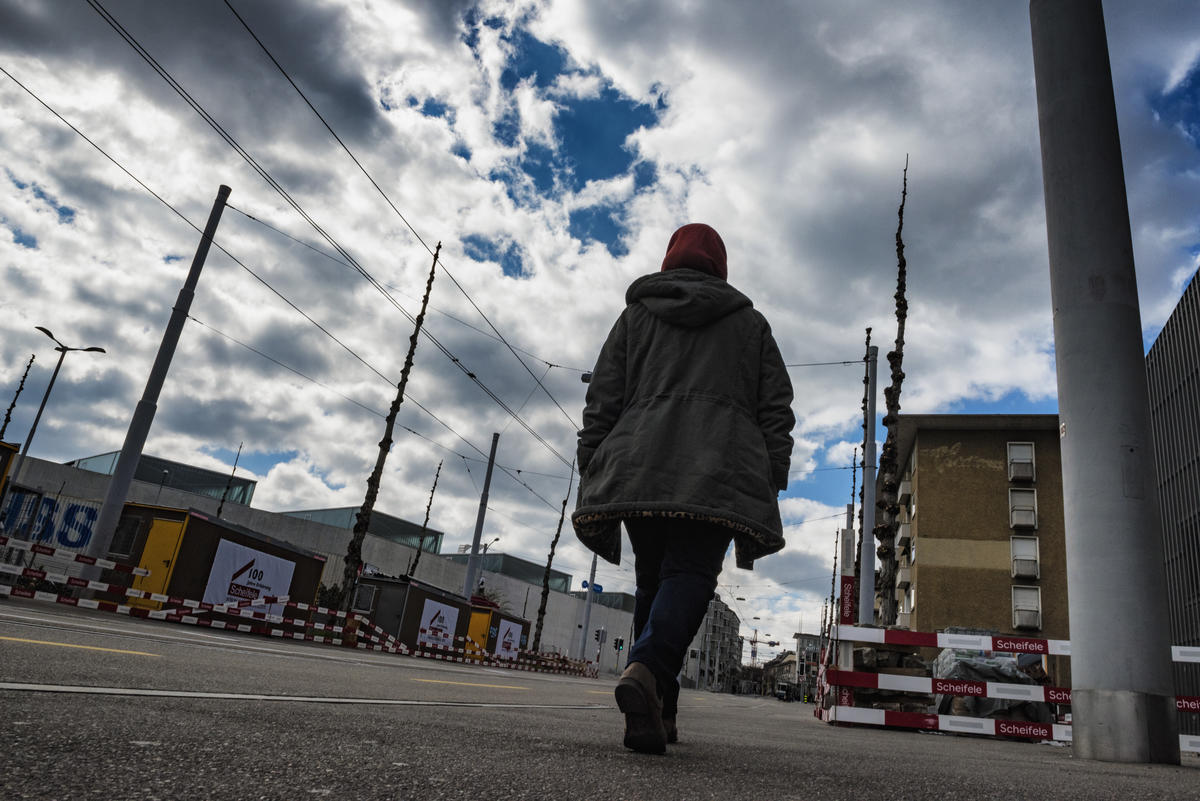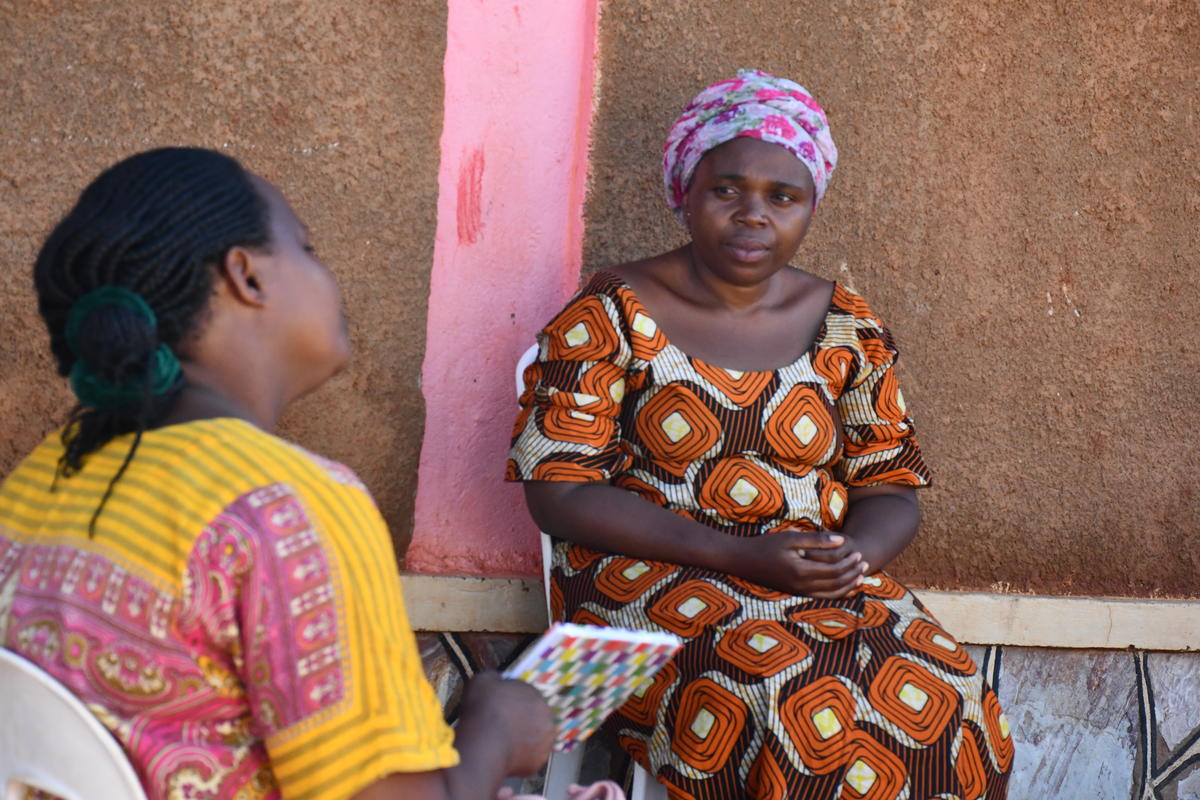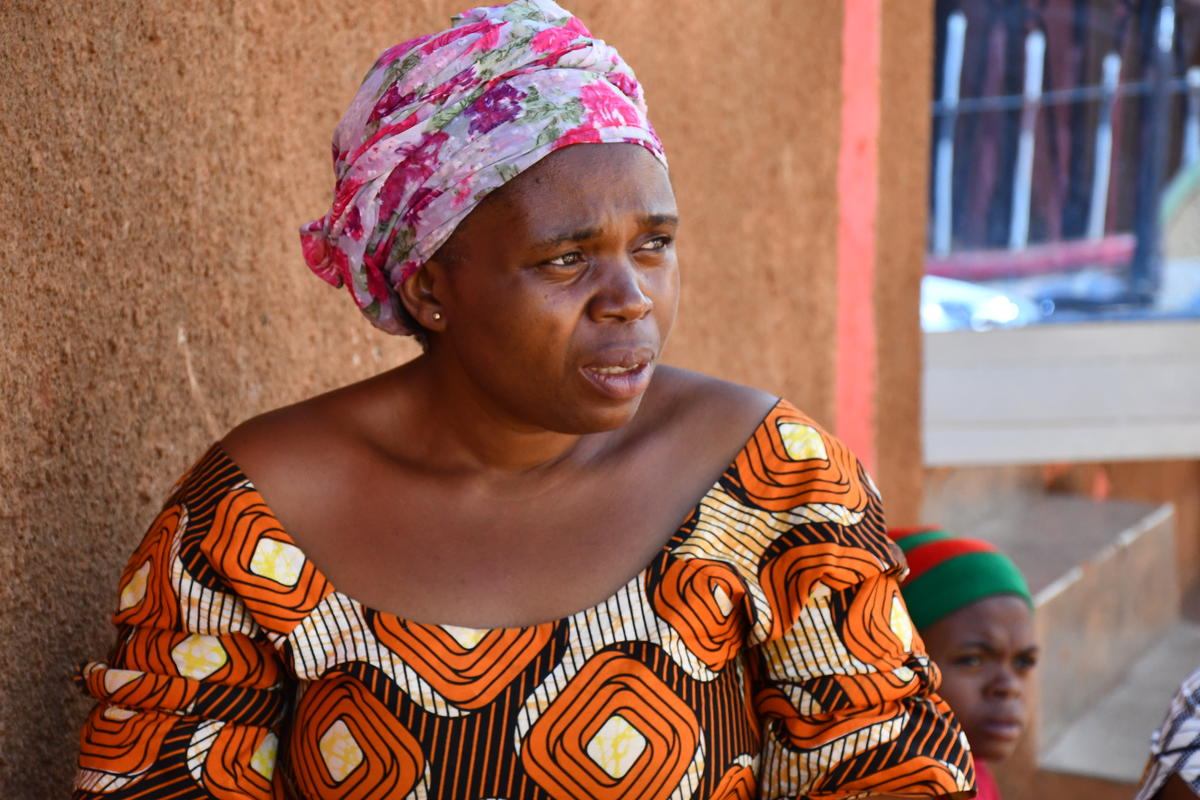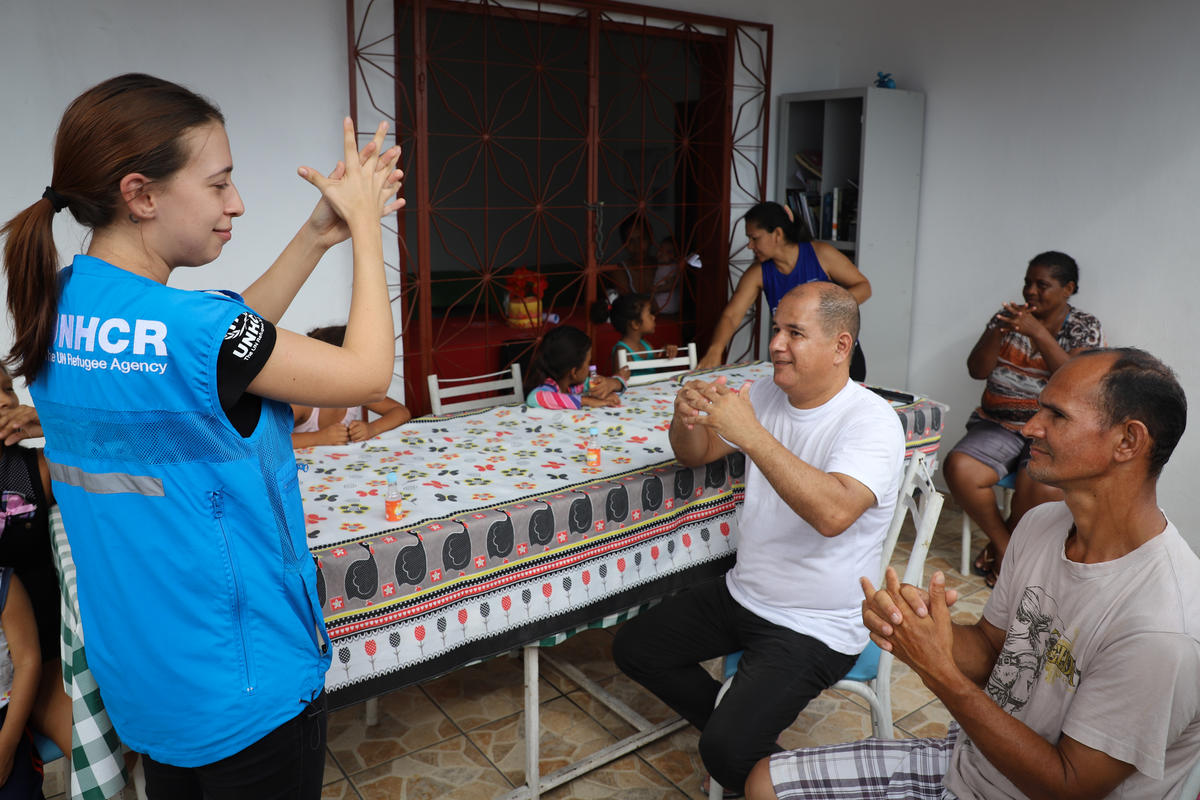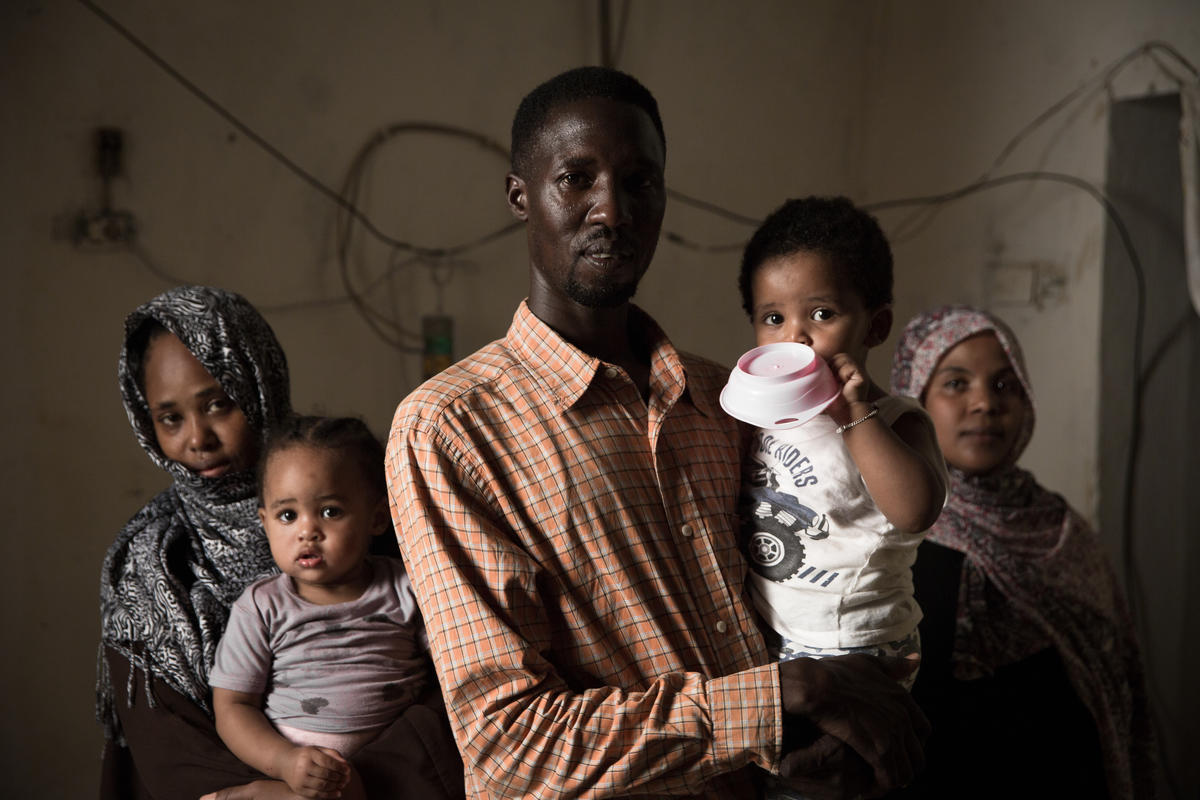The loneliness of the lone, distant urban refugee
The loneliness of the lone, distant urban refugee

KINSHASA, Democratic Republic of the Congo, September 22 (UNHCR) - Jack* seems close to giving up hope. The 32-year-old Sudanese refugee is stuck in a country where he can't speak the language and he can't get a decent job. And he's not ready to return to South Sudan, where his parents were killed.
UNHCR caught up with Jack recently at the headquarters of ERUKIN (Equipe d'Encardrement de Refugies Urbains de Kinshasa), a UNHCR-supported non-governmental organization that helps the most vunerable urban refugees in the Democratic Republic of the Congo. He was there to ask for help, after leaving his home on the edge of the capital a day earlier.
The dramatic and arduous journey that brought Jack to Kinshasa began in the South Sudan capital of Juba in 1989, when the country was embroiled in North-South civil war and the Khartoum authorities were forcibly recruiting people from the south into the armed forces.
"We left our schools [and fled]. Life was bad," Jack recalled. "I left for Juba and made my way to Uganda," he said, adding that things only got worse. He was travelling in a group and they were unlucky enough to run into one of Africa's most feared militia groups - the Lord's Resistance Army.
"They shot some of our friends," he said, adding that he decided to return to Juba. Jack said it was not long before he was arrested, accused of being a rebel and put in prison for two years. "I got out and came to Congo in 2003 . . . It took six months by foot, car and boat [to reach Kinshasa]."
But living in the Congolese capital has not really solved his problems, even though he was granted refugee status in 2005. "I am still suffering," he said. "My life here is very poor. I am jobless, moneyless."
Part of the problem is language, but Congolese civilians face economic hardship as well. Jack speaks some basic Lingala, but no French, which is widely spoken in the capital.
But, like some other Sudanese refugees, Jack is not ready to return home even though South Sudan became independent last month. He does not want to stay in Kinshasa either. "My solution is I will leave Congo . . . When I save a bit of money, some time, I will leave."
He talks about going to an English-speaking country in Africa, but it all seems like a pipe dream. He barely scrapes a living from selling herbal drinks and balms that he lugs around in a plastic bag and he acknowledges that: "To eat, it is a big problem." Jack lists his skills as driving and gardening, but he faces a lot of competition finding work.
What's more he lives on the outskirts of the capital, which sprawls for miles and miles along the southern bank of the mighty Congo. He had to set off a day earlier from the cramped home he shares with other young Sudanese men to come to the EURUKIN offices.
Jack's experience is not typical of the more than 15,000 refugees from nine countries living in Kinshasa, about 70 per cent of whom are Angolan and have a lot in common with the Congolese in the west of this country, but it highlights some of the problems faced by urban refugees across the African continent.
Without the assistance of an organization like EURUKIN, modest though it might be, life would be even more of a struggle for these people uprooted from their homes and forced to flee across borders.
"When I am sick I can get medical treatment," Jack noted, while revealing that he had come this time "to tell them about my [living] conditions." On his last visit, he had been given a blanket.
"We don't give out aid, but people with problems come and see us. We check and see if they merit help," explained Dieudonne Yenga Bamanga, the EURUKIN coordinator. The NGO, which was set up in 2004, deals mainly with problems of shelter, education and health.
"We also monitor refugees," Bamanga said. "We visit vulnerable people and unaccompanied children." And over the past year, EURUKIN has stepped up income-generation projects aimed at making vulnerable refugees self-sufficient. It has helped people set up as carpenters, cobblers, tailors, sewers and small retailers. "It's not easy for the refugees to work, because many Congolese people have no jobs."
That's why the work of EURUKIN and other aid organizations is vital for urban refugees, who would otherwise be left totally adrift in the big city. Jack, despite his depression, is certainly aware of that. But he's also worried that he can't rely on others for ever. "Life is difficult," he mused, before concluding that "you have to protect yourself before you get better."
* Name changed for protection reasons
By Leo Dobbs in Kinshasa, Democratic Republic of the Congo

